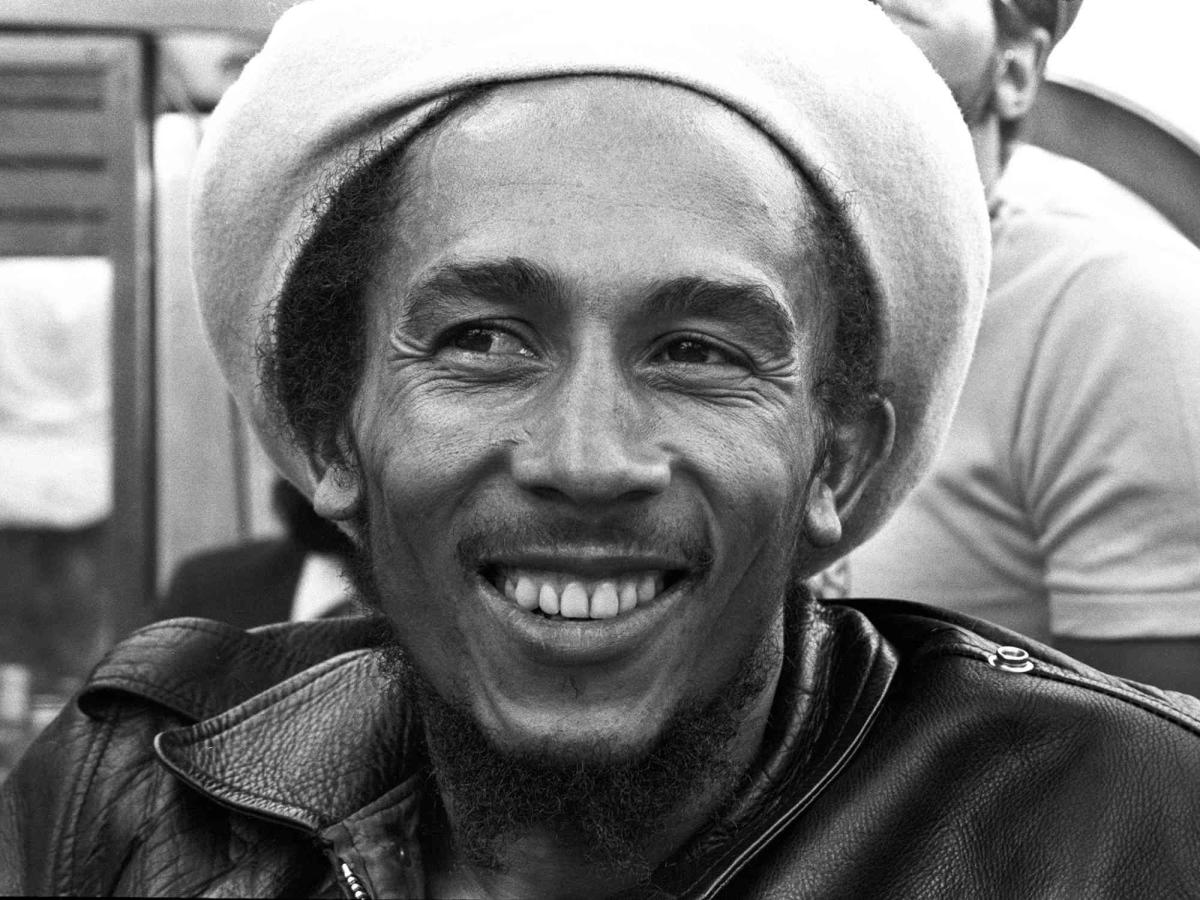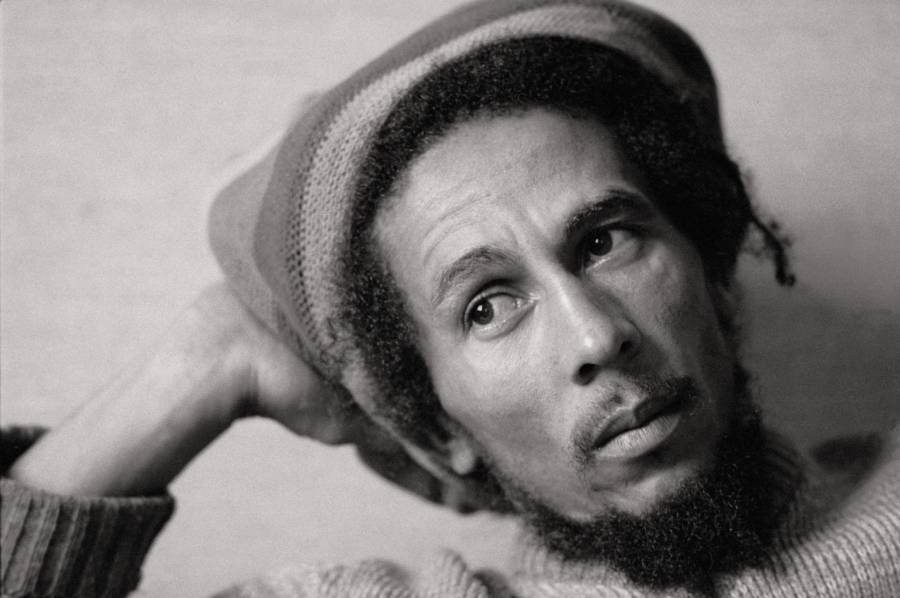Bob Marley Murdered: The Untold Story Behind The Legend's Demise
When we talk about legends, Bob Marley is a name that echoes through the corridors of history, music, and culture. The reggae icon who brought Jamaica to the world stage remains a timeless symbol of peace, love, and resistance. But what if the story you’ve heard about his death isn’t entirely true? What if there’s more to Bob Marley’s passing than meets the eye? Today, we dive deep into the mystery surrounding Bob Marley murdered theories and uncover the truth behind the legend’s untimely demise.
Bob Marley’s legacy extends far beyond music. He was a voice for the voiceless, a revolutionary who used his platform to speak against oppression and inequality. But like many great figures in history, his life was shrouded in controversy, and so was his death. While the official cause of his passing is widely accepted, whispers of conspiracy theories have persisted over the years.
This article will explore every angle of the Bob Marley murder mystery, separating fact from fiction. We’ll take a closer look at the events leading up to his death, the medical records, and the rumors swirling around his final days. So buckle up, because we’re about to embark on a journey that might just change the way you see one of the most influential musicians of all time.
Read also:Anderson Coopers Take On The Abbott And Costello Story
Table of Contents
- Bob Marley's Biography
- The Official Cause of Death
- Conspiracy Theories Surrounding Bob Marley Murdered
- Timeline of Events Leading to His Death
- Medical Insights: What Really Happened?
- Who Were the Key Influencers Involved?
- Jamaican Politics and Its Role
- Interviews and Testimonies from Close Associates
- Evidence Supporting the Murder Theory
- Conclusion: What Can We Believe?
Bob Marley's Biography
Early Life and Rise to Fame
Before we dive into the murky waters of conspiracy theories, let’s take a moment to remember the man behind the music. Bob Marley was born on February 6, 1945, in Nine Mile, Saint Ann Parish, Jamaica. His early life was a blend of struggles and triumphs, shaped by his mixed heritage—his father was a white Jamaican of English descent, and his mother was a black Jamaican villager.
Growing up in a racially divided society, Marley found solace in music. He began his career in the early 1960s, forming the band The Wailers with Peter Tosh and Bunny Wailer. Together, they revolutionized reggae music, bringing it to the global stage. Songs like "No Woman, No Cry" and "One Love" became anthems for unity and hope.
Below is a quick glance at some key facts about Bob Marley:
| Full Name | Robert Nesta Marley |
|---|---|
| Birth Date | February 6, 1945 |
| Death Date | May 11, 1981 |
| Place of Birth | Nine Mile, Saint Ann Parish, Jamaica |
| Occupation | Singer, Songwriter, Activist |
The Official Cause of Death
What the Medical Records Say
According to official reports, Bob Marley died on May 11, 1981, in Miami, Florida, due to complications from acral lentiginous melanoma—a rare form of skin cancer. The disease was first diagnosed in 1977 after Marley injured his toe during a soccer game. Despite undergoing treatment, the cancer spread to his lungs, liver, and brain, ultimately claiming his life.
However, not everyone buys into this version of events. Many believe that the cancer diagnosis was merely a cover-up for something more sinister. Critics argue that Marley’s death was too convenient, especially considering his involvement in Jamaican politics and his outspoken stance against corruption.
Conspiracy Theories Surrounding Bob Marley Murdered
Who Benefited from His Death?
The conspiracy theories surrounding Bob Marley’s death are as numerous as they are fascinating. Some claim that Marley was targeted because of his influence in Jamaican politics. As a vocal advocate for social justice, he had made powerful enemies in both local and international circles.
Read also:Regis Philbins Love Story Meet His Beloved Wife Joy Philbin
- CIA Involvement: One theory suggests that the CIA had a hand in Marley’s death. The agency allegedly saw him as a threat to their operations in the Caribbean and feared his growing influence in the region.
- Political Assassination: Others believe that Marley was assassinated by political rivals in Jamaica. His participation in the 1976 Smile Jamaica concert, which aimed to ease tensions between warring factions, made him a target for those who sought to maintain the status quo.
- Personal Vendettas: There are also rumors of personal vendettas against Marley. Some speculate that someone close to him orchestrated his demise for reasons unknown.
While these theories may sound far-fetched, they’re not entirely baseless. History is littered with examples of influential figures meeting untimely ends under suspicious circumstances.
Timeline of Events Leading to His Death
From Diagnosis to Passing
Understanding the timeline of events leading to Marley’s death is crucial in piecing together the puzzle. Here’s a brief overview:
- 1977: Marley injures his toe during a soccer game, leading to the discovery of melanoma.
- 1978-1980: Despite undergoing treatment, the cancer spreads to other parts of his body.
- 1981: Marley travels to Germany for alternative treatments but succumbs to his illness in Miami.
Each step in this timeline raises questions about the authenticity of the official narrative. Why didn’t Marley receive proper treatment earlier? Why did he choose to seek alternative therapies instead of conventional medicine?
Medical Insights: What Really Happened?
Experts Weigh In
Medical experts have weighed in on the controversy surrounding Bob Marley’s death. Dr. Josef Issels, the German physician who treated Marley in his final days, believed that the cancer could have been treated earlier if detected promptly. However, Marley’s refusal to amputate his toe due to his Rastafarian beliefs may have contributed to the cancer’s progression.
Some critics argue that the cancer diagnosis was used as a smokescreen to cover up foul play. They point to inconsistencies in the medical records and the lack of transparency in the investigation as evidence of a cover-up.
Who Were the Key Influencers Involved?
The People Behind the Scenes
Several key figures played a role in shaping the events surrounding Marley’s death. These include:
- Christine Marley: Bob’s wife and confidante, who remained by his side until the end.
- Don Taylor: Marley’s manager, who was also injured during the 1976 assassination attempt on Marley’s life.
- Dr. Josef Issels: The German physician who treated Marley in his final days.
Each of these individuals has their own story to tell, and their testimonies provide valuable insights into the mystery surrounding Marley’s death.
Jamaican Politics and Its Role
Power Struggles and Corruption
Jamaican politics during the 1970s was a hotbed of tension and violence. Marley’s involvement in the Smile Jamaica concert was seen as a threat to those in power. His message of unity and peace clashed with the divisive politics of the time, making him a target for those who sought to maintain control.
The assassination attempt on Marley’s life in 1976 is often cited as evidence of his political enemies’ determination to silence him. While he survived that attack, some believe that the same forces were behind his eventual demise.
Interviews and Testimonies from Close Associates
What They Have to Say
Over the years, several interviews and testimonies have shed light on the events surrounding Marley’s death. Close associates like Bunny Wailer and Peter Tosh have spoken about their suspicions, while others have remained tight-lipped.
One particularly intriguing testimony comes from Don Taylor, Marley’s manager, who claimed that Marley had received threats from powerful figures in the months leading up to his death. While these claims remain unverified, they add fuel to the fire of conspiracy theories.
Evidence Supporting the Murder Theory
Unraveling the Mystery
For those who believe that Bob Marley was murdered, the evidence is compelling. Here are some of the key points supporting this theory:
- Inconsistencies in Medical Records: Critics argue that the official medical records are incomplete and lack transparency.
- Political Motives: Marley’s involvement in Jamaican politics and his outspoken stance against corruption made him a target for powerful enemies.
- Witness Testimonies: Several witnesses have come forward over the years, claiming to have knowledge of foul play.
While this evidence is not conclusive, it raises important questions about the true nature of Marley’s death.
Conclusion: What Can We Believe?
As we wrap up our exploration of the Bob Marley murdered mystery, one thing is clear: the truth is elusive. While the official cause of death points to cancer, the conspiracy theories surrounding his demise continue to captivate audiences around the world.
So, what can we believe? Perhaps the answer lies in the legacy Marley left behind. Regardless of how he passed, his music and message continue to inspire millions. Let’s honor his memory by continuing the fight for justice and equality that he championed throughout his life.
If you enjoyed this article, don’t forget to share it with your friends and leave a comment below. Together, we can keep the conversation going and ensure that Bob Marley’s legacy lives on for generations to come.
Article Recommendations


